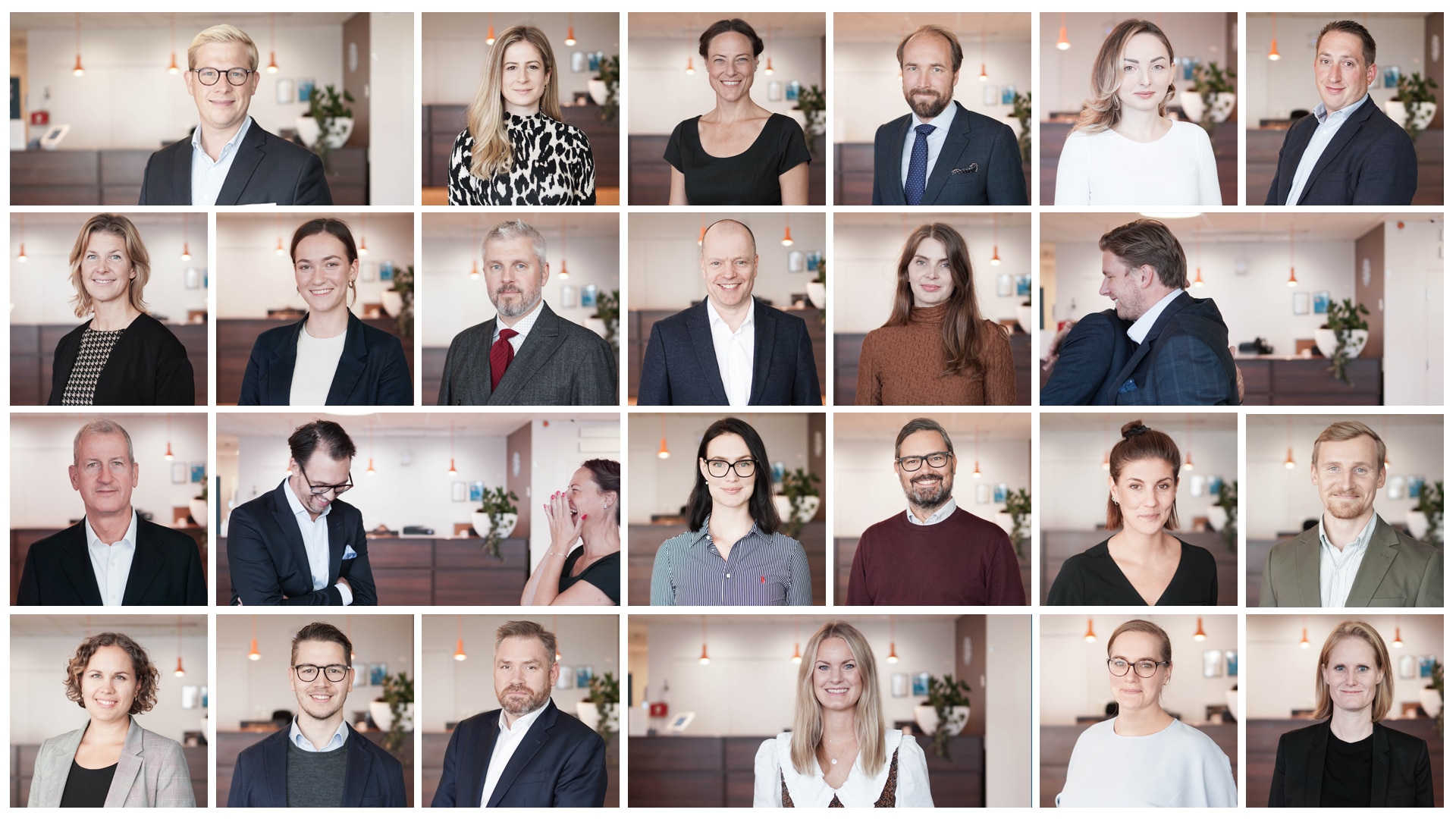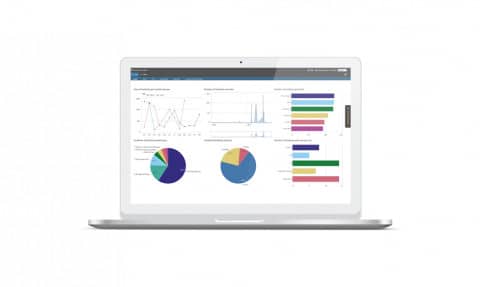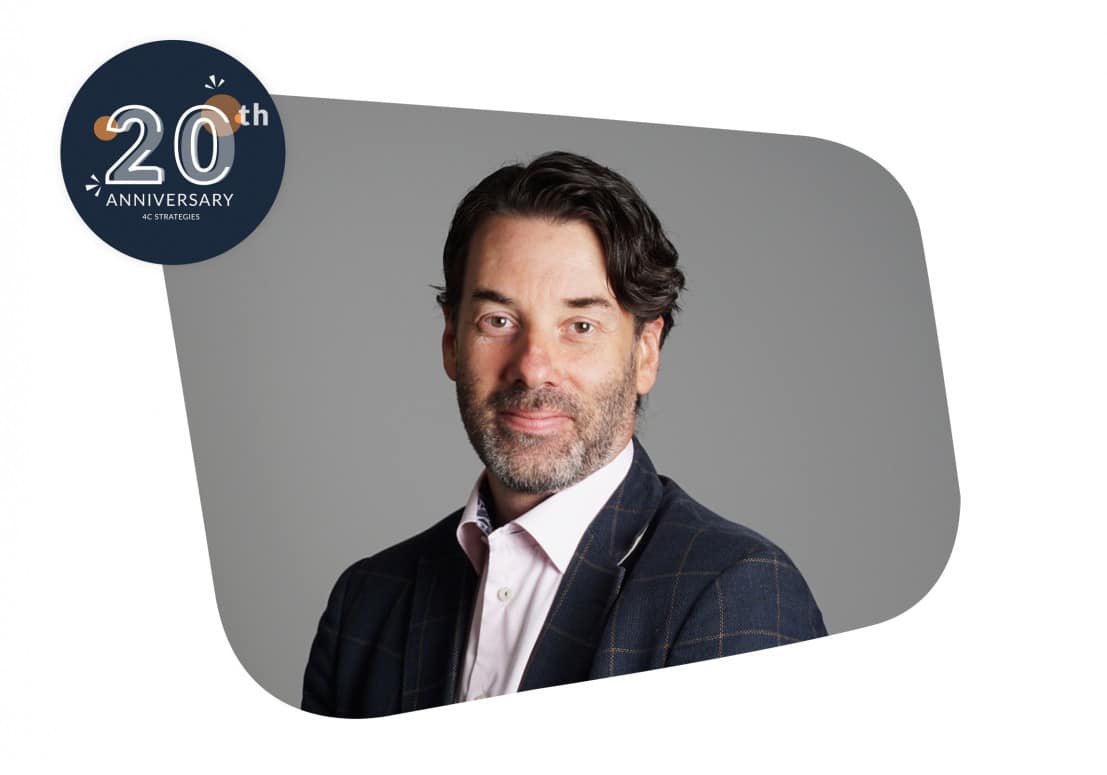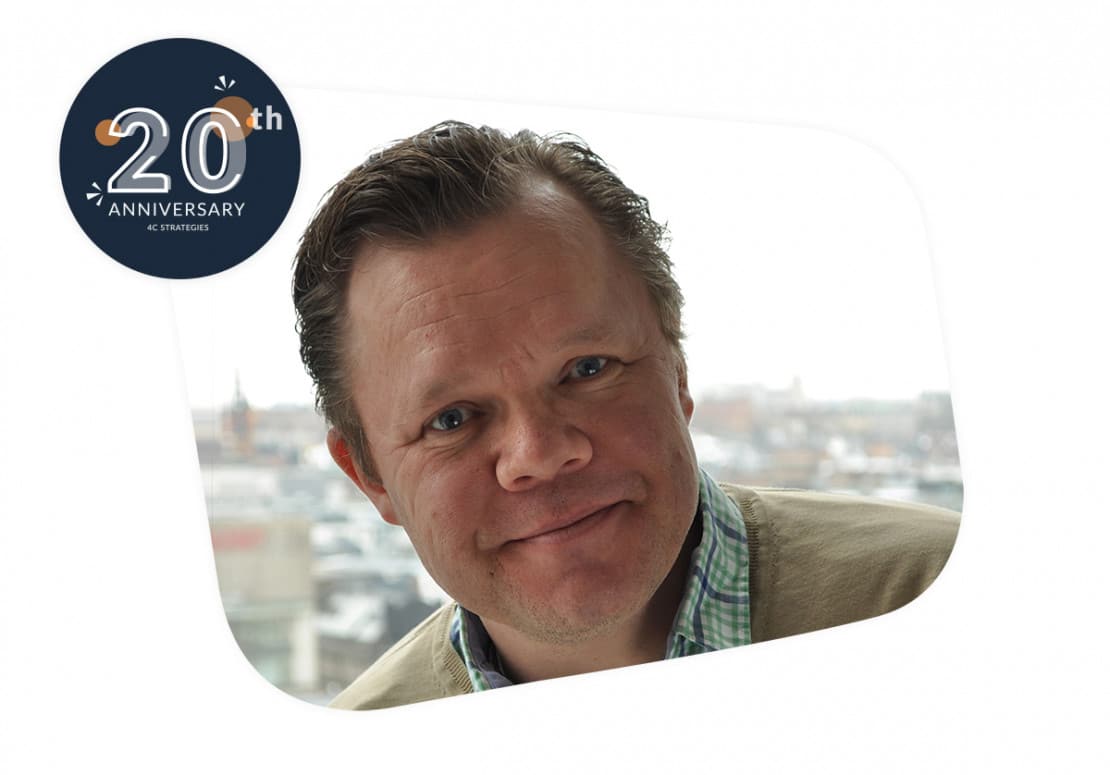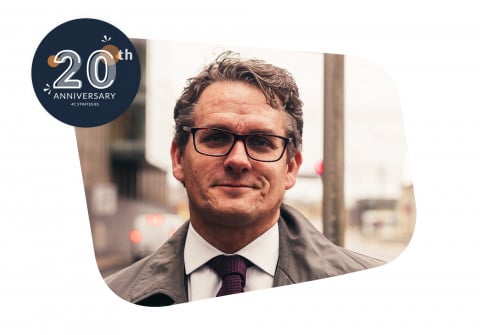
Following the 20-year anniversary of 4C Strategies, we talk to 4C Executive Vice President and crisis management specialist Klas Lindström. He tells us about consulting, the changes in attitude towards organisational resilience, and what we can expect from 4C Strategies in the future as it strives to meet its mission of building a safer society.
An evolving business in a changing industry
The consulting arm of our business began as a support service for military clients using the Exonaut software. Over the past 20 years our consulting business has evolved together with Exonaut into a full-service offering for customers in the public and private sectors as well as the military and emergency services. This growth can be put down to many factors, but one central theme has been that we always have our customers’ interests at heart. We make a point of understanding their needs and wants and work hard to provide the best results for them moving forward. A fundamental part of this is defining what ‘good’ looks like for them. Knowing what is good enough in a crisis, for instance, will make all the difference when decisions need to be taken quickly that will have a wide-reaching impact on a business or society. The experience we’ve gained from identifying good crisis management for organisations in many different industries, is passed onto our clients in the form of best practices.
Looking back over the past two decades, we can see how the attitudes within our business areas, have changed. For example, 20 years ago 4C Strategies was virtually alone in preaching the need for organisational resilience and effective collaborations between the private and public sectors. Today, organisational resilience is a well-established concept, as many organisations look to integrate risk management, incident and crisis management, IT continuity, and business continuity management into an integrated plan for effective preparation and response. Private-public collaborations are now common throughout the industry – many of which we have helped to form and continue to work with since their conception – here in Sweden. These include the Swedish Post and Telecom Authority (PTS) and Sweden’s Financial Supervisory Authority, among others, which have been built for authorities and businesses in these sectors.
Change at every level
It’s not just holistically where we’ve seen a change. Attitudes to individual areas of response are also very different. Compliance for instance, used to be about ticking boxes. It was a case of; ‘Are we compliant? Good, move on’. People are now beginning to understand that checklist exercises such as this have very little to do with capabilities – and growing capabilities is how we have been helping customers since day one of our operations.
Attitudes to risk have also changed. Most organisations used to look at risk as something that should be mitigated rather than a business facilitator. 4C has helped change this. One of our Principal Consultants, for instance, has developed a new risk model that is used by global companies in order to grow operations in accordance with risk appetite.
If the tolerance for taking risk has grown, however, the tolerance for failure in a lot of organisations has decreased. The business climate today is very unforgiving. If a crisis isn’t handled effectively someone will be blamed, even if the crisis is completely out of your control. An earthquake can occur, and you need to have a plan for it – if not, you may not recover. To effectively manage a crisis like this requires the right capabilities that fully leverage interdependencies and the ability to take ‘good enough’ timely decisions – ‘great’ delayed decisions come at a cost. This is another area where we can support our clients.
20 years of crisis management
Personally, I’ve been heavily involved in operational resilience for 20 years, witnessing changes in attitudes first-hand. My experiences from supporting organisations, within the private and military sectors, led to the creation of the easy-to-use “Facts and assumptions” model, for crisis management teams. I think the most high-profile case that I’ve been involved in, is the 2017 Stockholm terror attack, where I was summoned to a regional command centre 40 meters below ground and tasked with providing strategic analysis. Things like this really do emphasise the need to prepare for a crisis. The most unexpected scenarios can become reality, as has been proven by the pandemic. Equally important is the knowhow and the ability to use appropriate tools and methodologies mid-crisis when your decisions have a real-time impact, in this case locally and on society at large.
The coronavirus pandemic response
The coronavirus pandemic has really elevated the awareness around business continuity management and crisis management. All organisations are dealing with the impact of COVID-19 and are searching for the optimal way to manage the situation. Not surprisingly, many of our consultants have been actively supporting organisations through the pandemic, with everything from effective internal and external crisis communication to safeguarding IT continuity in the new remote work environment. Our Exonaut software was also used to help coordinate repatriation flights home for EU citizens abroad.
People make things happen, and we’ve always had great people at 4C. Skilled experts that want to make a difference for our customers and to society, which has always been our goal as a company.
Klas Lindström, Executive Vice President, 4C Strategies
.grey-box { background-color: #d3d3d3; padding: 20px; }
Making a difference to society and customers
Many of the changes that have occurred over the past 20 years, didn’t happen on their own. People make things happen, and we’ve always had great people at 4C. Skilled experts that want to make a difference for our customers and to society, which has always been our goal as a company. Also, unlike a typical consulting company, we have our Exonaut readiness management software – a tool that’s designed specifically for use with business continuity, risk, and incident & crisis management, as well as training and exercises. Our consultants not only offer subject matter expertise, but also have access to a support tool that is modelled on industry best practices and experiences from a global client base. It’s a very good combo to develop an organisation’s capabilities.
Military training, on and off the field
The same applies to the military side of our business. We have a large team of talented military training and exercise management personnel who do amazing things for many of the world’s allied forces. Using Exonaut and their personal experience from years of developing and managing exercises, they utilise lessons learned to ensure soldiers are better prepared for combat. Over the years, our experts have been involved in exercises in some of the most remote places in the world.
However, many of today’s military exercises are being conducted at bases in virtual war zones. This shift to synthetic training is a clear strategic change in the way exercises are and will be conducted by the military in the future. For instance, we are currently developing Exonaut’s capabilities to meet the needs of the U.S. Army’s next generation Synthetic Training Environment. Naturally, we are extremely proud to be a part of this, since the idea behind our software from day one has been to improve training and soldier-readiness while saving on resources. Ultimately, our troops are there to protect us. 4C Chairman and Head of Product, Andreas Hedskog, talks more in-depth about Exonaut and the military here.
Software
Exonaut Software
Request a demonstration of our Exonaut® software solutions for your risk, business continuity, crisis and exercise management needs.
Yes, I want a demo
Get in contact
The new normal for defence
Looking to the future, our consultants will continue to play a vital role in nations’ defences as we move to a multi-polar world, with the west on one side and China, Russia and the like on the other. And I’m not just talking about military defence, although this remains a key market for us going forward. The rise in non-military attacks on governments and democracy has increased dramatically in recent years, in the form of cyber-attacks, terrorism and the spread of disinformation. Government spending to safeguard society against this is growing, and we will continue to support them with the necessary expertise.
Within the public sector, much of the focus is on the pandemic response at the moment, but it doesn’t stop the need for all other day-to-day activities to continue. We will continue to support local, national and international organisations to be better prepared for the current and any other upcoming crises.
The value of effective crisis management in the private sector
In the private sector, the need to be prepared and respond to a crisis has never been more important. For instance, in the Resilience: An Engineering & Construction Perspective paper, it was found that listed companies that have successfully responded to a crisis had a 45% higher comparative stock market value, than those companies that did not properly handle a crisis. The cost of failure in a crisis has never been higher, nor have the rewards for effectively responding. The value we can provide private companies by building their organisational and operational resilience capabilities is clearly emphasised in this research, which is why I expect our market to grow in this area.
In conclusion
Our success is built on the great people that work here and have worked here. It’s been a pleasure to be a part of it together with them, and long may it continue.
Discover the rest of the 4C story
20 years of constant growth and contribution to a safer society
4C Strategies founder Andreas Hedskog discusses the past, present and future of the company.
Resilience, relevance and leadership: the key to global expansion
Magnus Bergqvist, 4C Strategies CEO, shares his thoughts on where the industry is heading.

